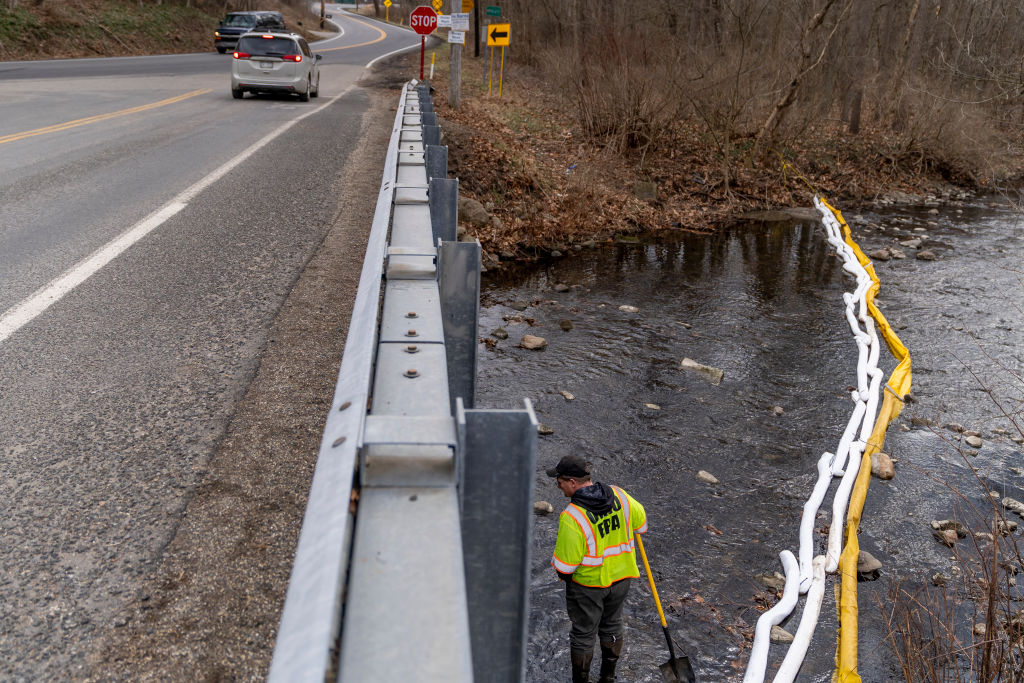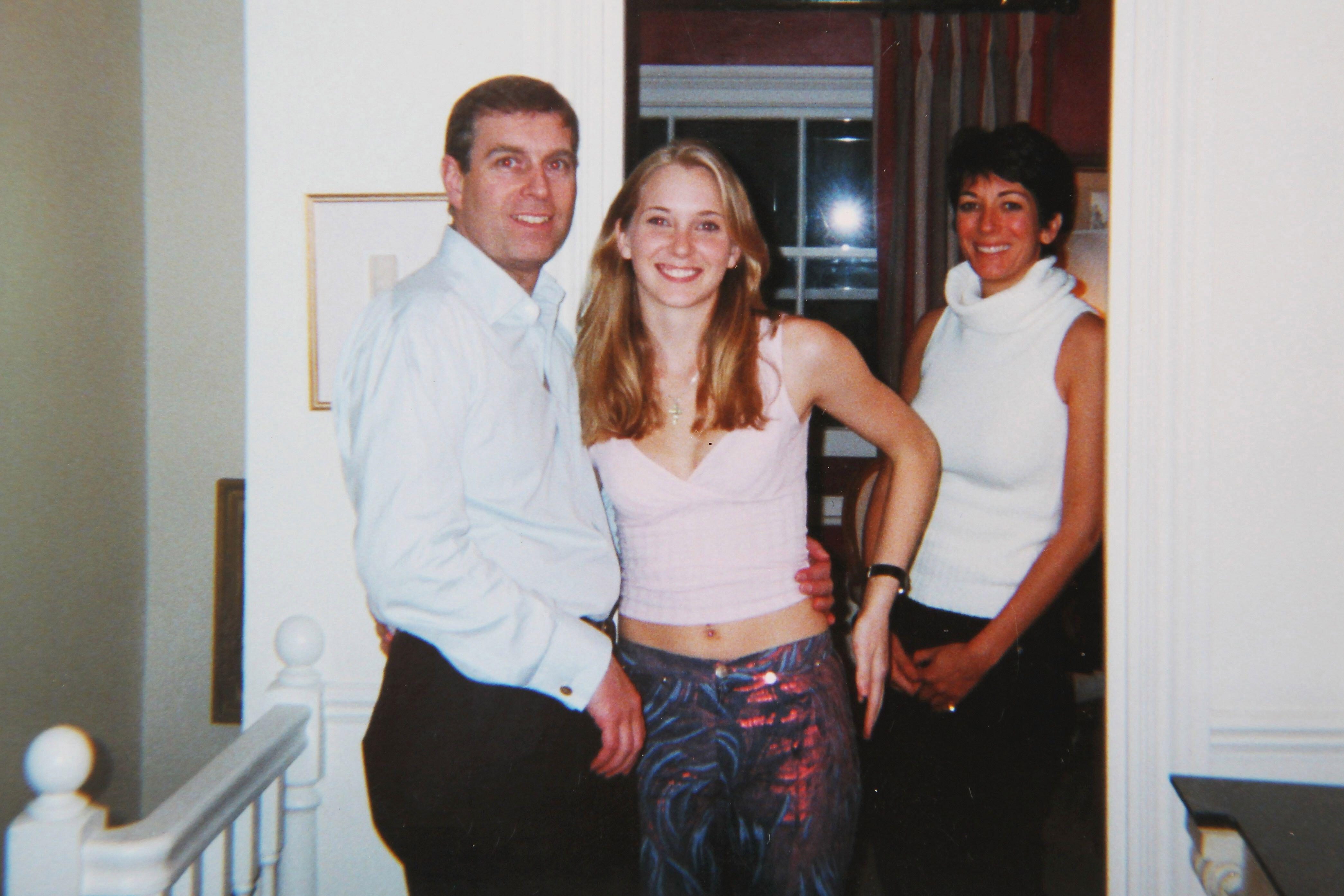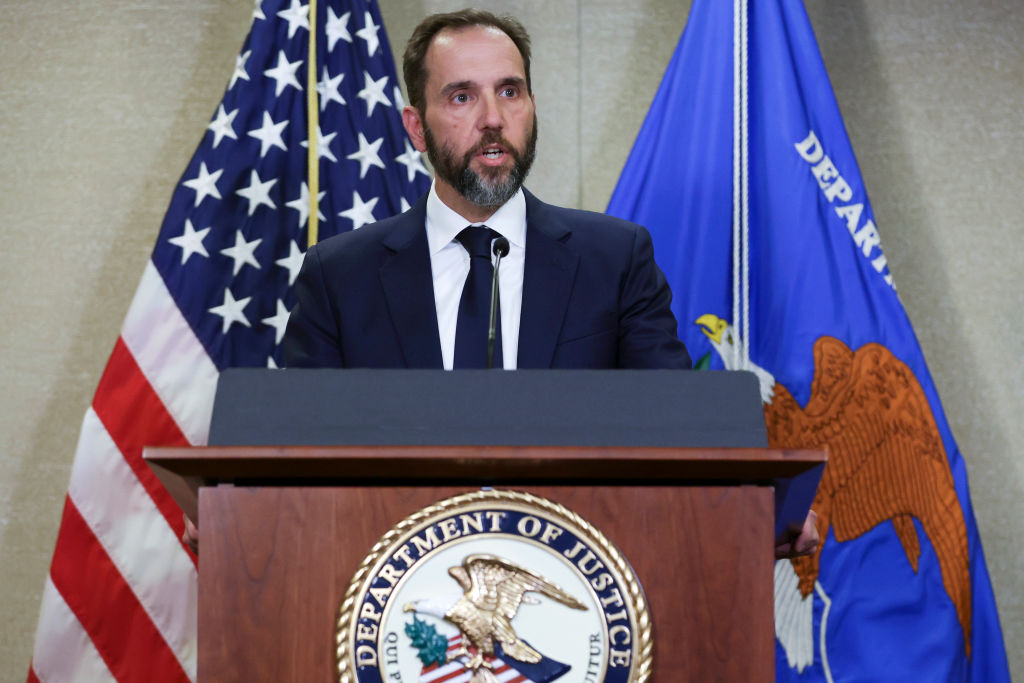When I arrived in East Palestine, Ohio, on Wednesday, the quaint Main Street was a red, white and blue sea of people waiting in chilly, drizzly weather for Donald Trump to arrive. I met up with Brian and Samantha, who live three miles from the site of the Norfolk Southern train derailment. They were acting as Tulsi Gabbard’s tour guide and graciously invited me to tag along.
The East Palestine area is a typical rural community. Villages with little more than a volunteer fire department and a basic convenience-style store are scattered across the countryside. People enjoy their space and peace and quiet, but they’re also close-knit and neighborly.
“With everything that’s happening in town, the most we see this type of activity is the Fourth of July and high-school sports,” Brian told me. “In our town, that’s what we revolve around — high-school sports.”
High-school sports have been one of the earliest casualties of the recent rail derailment that’s suddenly thrust East Palestine into the national spotlight. Opposing teams have forfeited scheduled games and matches. Community members come and go to pick up bottled water while an invasion of out-of-town news crews and environmental “experts” is underway.
“You go into town right now — it’s emotional,” Samantha said.
***
I would describe the mood I sensed in East Palestine as tense and wary. In the center of town, where Trump spoke later in the day (and dropped off “Trump Water”), is a parking lot where people pull in and have bottled water loaded into their cars.
The situation in East Palestine smacks of Covid: people are confused and scared; they’re receiving mixed messages from government officials and the media, eroding their trust even further at a time when it’s needed most; many seem convinced they’ll never know the full story of what caused the disaster or what the prolonged consequences will be.
“If the past couple years have taught us anything, it’s that you can’t trust the media,” Brian said. “People are afraid because they don’t know what to believe. They’re being told we’re safe, but they smell things, kids are getting rashes, fish are dying. The long-term effects are what’s scaring me — and the way officials are acting is what’s angering me.”
At the bottled water distribution site, I spoke to a volunteer who travels the country to lend support to places going through painful events. He’s been to Kenosha, Wisconsin, Uvalde, Texas, and other towns.
“It’s at an all-time bad as far as trusting even the social services,” he told me. “For example, I was at Fort Myers [after Hurricane Ian] for three months. They don’t trust FEMA, they don’t trust the Red Cross, they don’t trust the Salvation Army, they don’t even trust Samaritan’s Purse. The distrust I’ve witnessed [in East Palestine] is shocking to me. People say, ‘Even if my well gets tested, my tap gets tested every day, and I believe the sources testing it, my grandkids aren’t drinking anything but bottled water. If my daughter comes over and she’s got to mix her baby formula, I’m not using the tap or anything for a year.’ Post-traumatic stress is what it looks like to me.”
The volunteer said political polarization, another problem exacerbated by Covid, was on display in East Palestine the day I (and Tulsi and Trump) visited. With tears in his eyes, he told me there had been fights and arguments between pro- and anti-Trump people on Main Street, “right next to the railroad tracks. They were both from the community. There were snipers up on that building, snipers laying on the gravel right there, and this guy tells me, ‘I’m going to go across the street and kill those motherfuckers.’ That’s where the community is. It’s a bad space for America to be in.”
***
Lingering mistrust from how Covid was mishandled may have set the stage for East Palestine’s cynicism, but it’s been more than vindicated. Brian and Samantha described how the attitude after the derailment was “fairly nonchalant” at first. The town mayor wasn’t even informed right away; word is that he first learned of the wreck when he saw the smoke Saturday morning while walking his dog.
Brian was out coyote hunting on Friday night when the explosion happened. He encountered several local news station trucks while he was heading back home. Saturday morning, he and Samantha went about their day. They could see haze in the air in the morning when they went to the gym in a nearby town. They said that when they made a brief stop in East Palestine to drop a letter at the post office, they could smell toxins and both got headaches.
“Saturday is when they started the one-mile evacuation, but it wasn’t mandatory,” recalled Brian. “Saturday was full of confusion, while everyone was being exposed. Through Sunday night and Monday, they realized one of the tanks was building pressure, and it was becoming a bomb, so they decided to do the burn-off on Monday, and said, ‘You need to evacuate.’ They were pounding on doors, windows, saying, if you won’t leave, you’re going to get arrested, because your life was depending on it.”
Samantha said it took days for officials to release a list of what chemicals were in the derailed train cars. She has done her research and is impressively equipped with facts about these toxic chemicals whose very names are a mouthful. With an air of having been insulted by the arrogant EPA, she said, “We can Google things just as well as anyone.”
***
The rolling hills around East Palestine are dotted with beautiful old farmhouses and barns. I noticed on my drive in a few “Save Our Farmland” signs advertising moreaboutsolar.com. The website contains articles on the “disadvantages of solar” and poignant accounts from people describing “what life has been like” after they were duped by the promises of the solar industry.
What is happening in East Palestine tells you everything you need to know about the green movement: activists claim to care about the environment, but when there’s a big eco-disaster actually happening, they’re nowhere to be found.
Less than a year ago, transportation secretary Pete Buttigieg said, “Transportation ought to be responsible for the biggest share of the [climate change] solution.” Yet it took Buttigieg nearly three weeks to visit East Palestine, and his visit came only after mounting criticism over his glaring absence. EPA administrator Michael S. Regan did visit East Palestine last week and was set to make a second trip this week. President Biden, of course, has not been to East Palestine, choosing instead to visit Ukraine this week and give Volodymyr Zelensky $500 million in more aid.
Though they said the administration’s behavior didn’t surprise them, Brian and Samantha reiterated to me what their mayor said: it’s a “slap in the face.”
“I don’t understand how people can have such a lack of care for another human being’s life,” said Samantha. “And not just one, but so many. And little kids, too, and wildlife.”
“All these environmental experts and people who ‘care’ about this, they’re not here,” added Brian. “All the people who are the loudest, none of them are here. I haven’t heard anything from any of them.”
What East Palestine illustrates “with Monster Truck force” (to borrow a phrase that resonates with country folk) is the true essence of these activists: they don’t care about the environment and they don’t care that people suffer. It’s the same where I live in rural Pennsylvania. An out-of-town solar company is proposing building a huge solar farm on top of abandoned mine lands that have been leeching polluted toxins into our watershed for generations. It’s the dirtiest site for “clean energy” in our county. Rather than clean up these places and restore them to their former health and beauty, these companies and agencies deem them “useless” for anything but their own agenda.
People in East Palestine wonder if their community will be deemed useless for anything but a Norfolk Southern rail yard or another expansive solar farm. What is the agenda here, exactly? Brian has an idea: “You knock out food, water, and transportation, and that’s the quickest way to take down a country.”

























